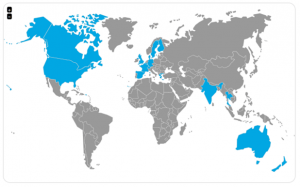Introducing the first global database of cohorts for neurodegenerative diseases
 To promote the use and connection of cohort studies, the Joint Programme for Neurodegenerative Disease Research (JPND) has developed a new online gateway to longitudinal cohorts suitable for neurodegenerative disease (ND) research.
To promote the use and connection of cohort studies, the Joint Programme for Neurodegenerative Disease Research (JPND) has developed a new online gateway to longitudinal cohorts suitable for neurodegenerative disease (ND) research.
The JPND Global Cohort Portal is a searchable database of cohort studies from countries around the world. By providing users with an overview of and contact details for each cohort, this publicly available resource aims to facilitate information exchange and new collaborations, to help promote a greater volume of ND research, increased efficiency and ultimately greater scientific impact. The Portal is expected to debut on the JPND website in Autumn 2017 and will continue to grow as new cohorts are added.
How does it work?
The Portal spans both disease-focused and general population studies, providing a high-level overview of each cohort, including the types of data collected. Once the most relevant cohorts are identified, Portal users may navigate directly to the individual cohort website or contact the principal investigator for further information and guidance on how to use the cohort as a resource.
Why cohorts?
Longitudinal cohort studies allow researchers to collect data on populations over time in order to establish high-quality correlations and tease out new clues regarding the determinants and risk factors of disease. As such, cohorts are among the most important tools for current and future research on neurodegeneration.
As outlined in a 2013 JPND report linking and comparing studies could lead to important insights and statistically more powerful conclusions. Yet detailed information on cohort studies is often difficult to find, and identifying and connecting with the right contacts from each cohort can pose additional challenges. The JPND Global Cohort Portal was developed to meet these needs.
How can I get involved?
The JPND Global Cohort Portal will continue to expand. If you have information regarding a relevant cohort study that could be included, we encourage you to get in touch. For this and any other questions, emails should be directed to: [email protected].
